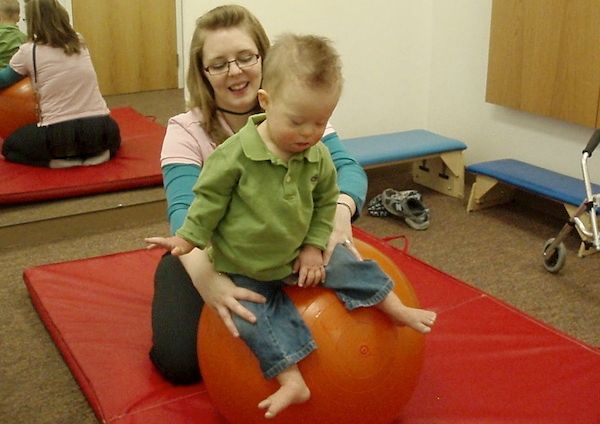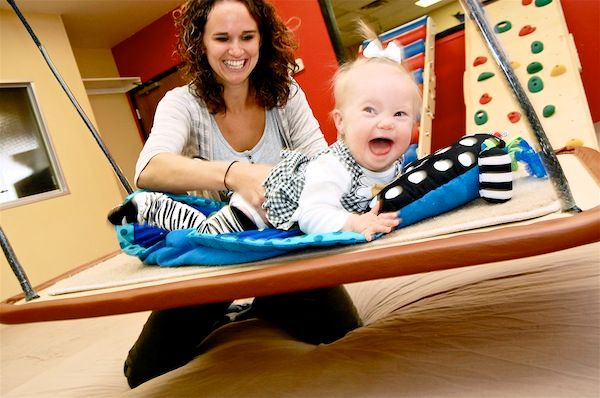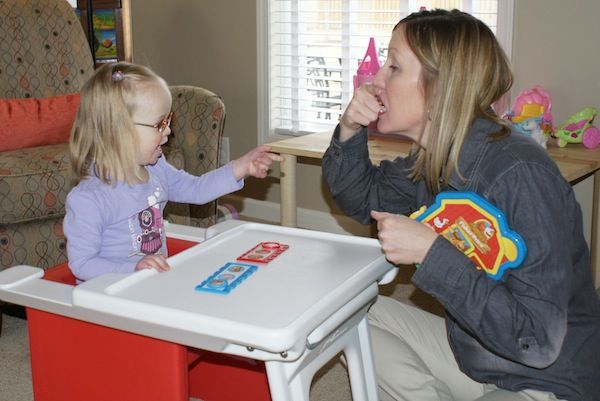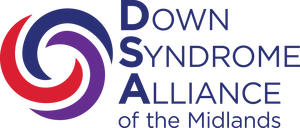Physical Therapy

Physical therapy (PT) focuses on gross motor skills to improve your child’s ability to move and function across all environments (home, school, and community). Children with Down syndrome, like other children, develop according to their own timetable – some slower than others, and some faster. However, a number of physical and medical issues may delay your child’s development of various gross motor skills. Your child should nonetheless master the basic gross motor skills of sitting, walking, running, jumping and riding a tricycle. For example, most babies who have Down syndrome will learn to sit independently between 8 and 12 months old.
Occupational Therapy

Occupational therapy (OT) focuses on the development of skills necessary for your child’s independence. These skills include fine motor skills, visual and oral-motor skills, as well as visual spatial awareness. An occupational therapist might work with your child to help promote arm, hand, and finger strengths. This work can lay the foundation for later-developing fine motor skills, such as reaching, grasping, releasing, and manipulating toys.
An Occupational Therapist may also assist your child with feeding (management of food and liquids, cup drinking, finger feeding, and utensil use). As with gross motor skills, a number of characteristics associated with Down syndrome may affect your child’s development of fine motor skills. Your occupational therapist will work with you to develop strategies and activities to help your child build a strong foundation of skills for independence.
Speech and Language Therapy

The goal of speech therapy (SLP) is effective communication between your child and the world around (family, school and community) him. Communication includes not only speech, but also facial expressions, smiles, gestures, and alternative systems such as sign language. Speech and language challenges emerge for many children with Down syndrome. A child who has Down syndrome may have more difficulty with expressive language (talking) than with receptive language (understanding). As with all other areas of development, the age in which children with Down syndrome have speech mastery varies greatly.
